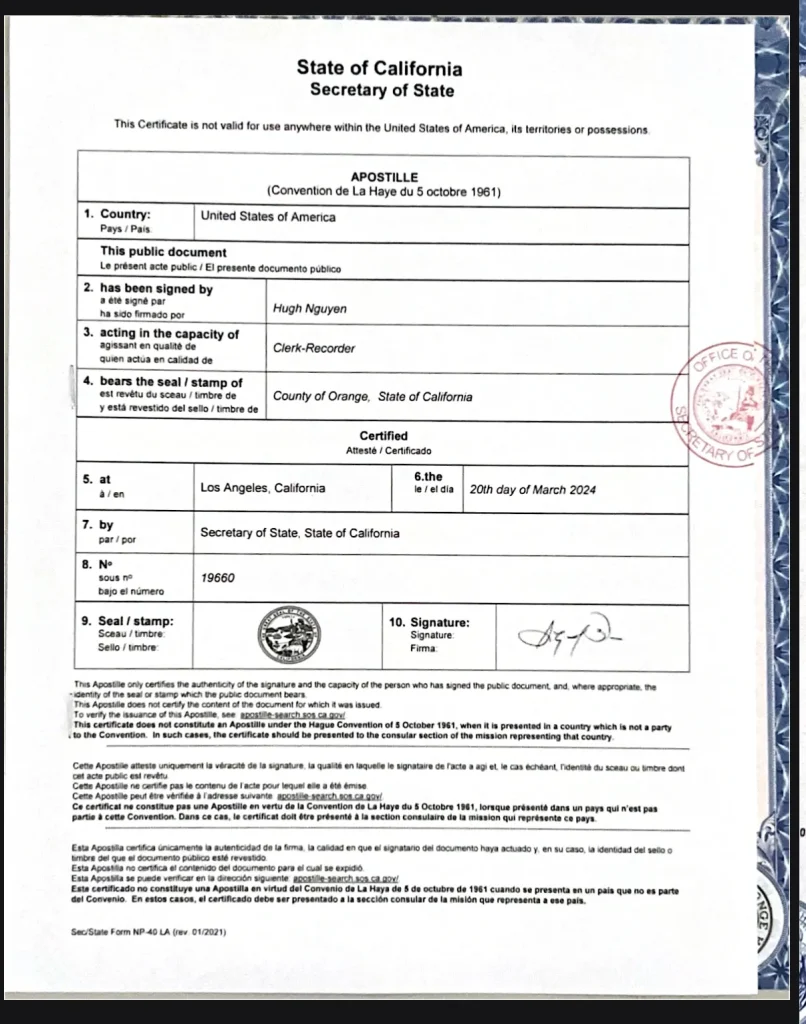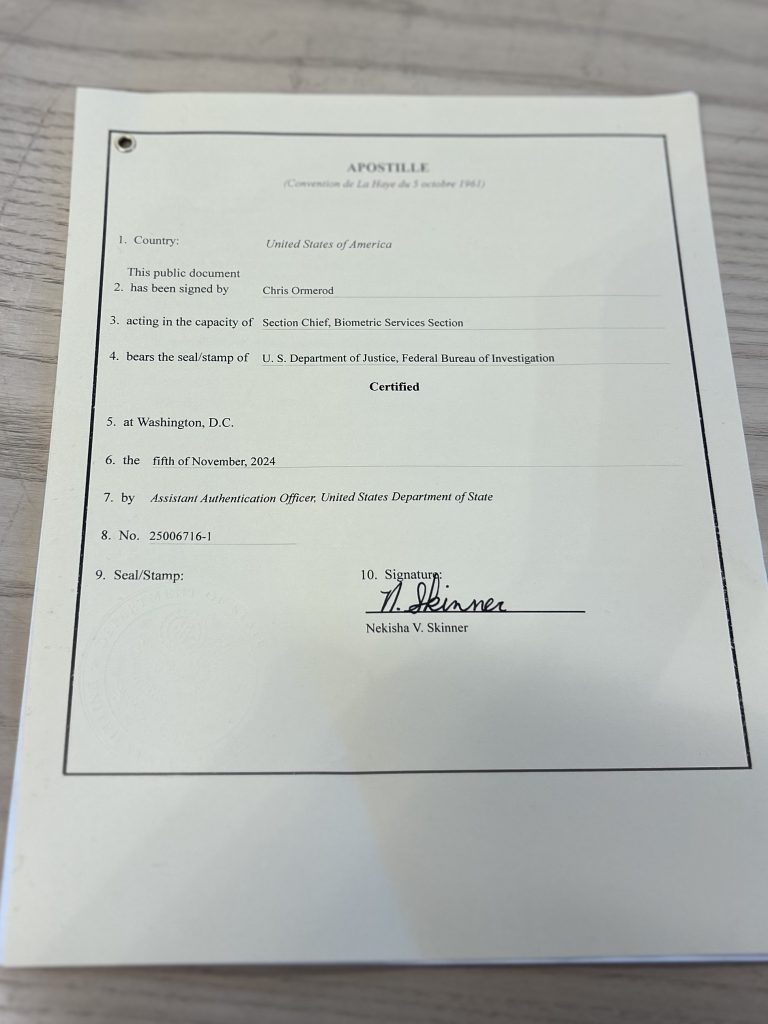

Apostille Service Provider
When you need to use U.S. documents overseas, obtaining an Apostille is essential for their legal recognition in countries that are members of the Hague Apostille Convention. The process of obtaining an Apostille can vary significantly depending on whether the document is federal or state-issued. Here’s an in-depth look at the differences between state-level and federal Apostilles, detailing each process, the types of documents handled, and the authorities involved.
State-Level Apostille
Definition and Authority
A state-level Apostille authenticates state-issued documents, making them valid for use in foreign countries that are part of the Hague Convention. Each state has a designated authority, typically the Secretary of State or the state’s Department of State, responsible for issuing Apostilles.
Documents Handled
The types of documents that generally require a state-level Apostille include:
• Vital Records: Birth certificates, death certificates, and marriage certificates.
• Legal Documents: Notarized documents, power of attorney, affidavits, and other court documents.
• Academic Records: Transcripts, diplomas, and other educational credentials issued by state-recognized institutions.
Process
To obtain a state-level Apostille, the document must first be certified by the issuing state agency or notarized by a state-commissioned notary public. The document is then submitted to the state’s designated Apostille issuing authority. The process typically involves verifying the seal and signature of the notary or official on the original document.
Purpose
The primary purpose of a state-level Apostille is to verify that the document is legitimate and the signatures are genuine, thereby facilitating its acceptance in member countries of the Hague Apostille Convention.
Federal Apostille
Definition and Authority
Federal Apostilles authenticate documents issued by U.S. Federal agencies, such as the FBI, the U.S. Department of Homeland Security, and other federal departments. The U.S. Department of State, Office of Authentications, is the designated authority for issuing federal Apostilles.
Documents Handled
Documents typically needing a federal Apostille include:
• Federal Background Checks: Such as those issued by the FBI.
• Administrative Documents: Including those from the Social Security Administration or the U.S. Patent and Trademark Office.
• Federal Court Documents: Decrees, judgments, and filings.
• Certificates of Naturalization: Documents proving U.S. citizenship obtained through naturalization.
Process
To receive a federal Apostille, the document must originate from a U.S. federal agency and be submitted directly to the U.S. Department of State’s Office of Authentications. This process ensures the document is authenticated at the federal level, certifying its origin from a U.S. federal entity.
Purpose
Like its state-level counterpart, the purpose of a federal Apostille is to certify the authenticity of a federal document for acceptance in foreign countries under the terms of the Hague Apostille Convention.
Summary
Understanding the distinction between state-level and federal Apostilles is crucial for properly legalizing your documents for international use. The key differences lie in the jurisdiction of the originating document and the respective issuing authority:
• State-Level Apostilles are handled by state authorities and apply to documents originating within that state or territory.
• Federal Apostilles are managed by the U.S. Department of State and are necessary for documents originating from federal agencies.
Both state-level and federal Apostilles facilitate the international legal acceptance of documents by certifying their authenticity. Whether you are dealing with personal, educational, or legal documents, knowing which type of Apostille your document requires is essential for ensuring smooth international interactions.